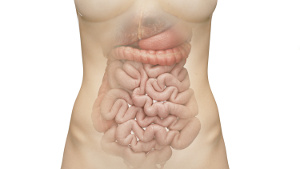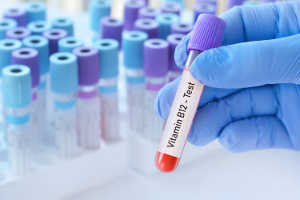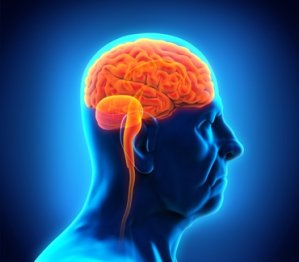afterLoad (456.28KB) (424μs)
afterInitialise (1.27MB) (55.1ms)
afterRoute (870.44KB) (20.15ms)
beforeRenderComponent com_tags (20.52KB) (247μs)
afterRenderComponent com_tags (1.93MB) (162ms)
afterDispatch (27.08KB) (7.74ms)
beforeRenderRawModule mod_articles_category (READ MORE...) (373.37KB) (22.56ms)
Before Access::preloadComponents (all components) (56.7KB) (506μs)
After Access::preloadComponents (all components) (103.05KB) (4.18ms)
Before Access::getAssetRules (id:8 name:com_content) (840B) (18μs)
After Access::getAssetRules (id:8 name:com_content) (7.05KB) (40μs)
afterRenderRawModule mod_articles_category (READ MORE...) (5.08KB) (166ms)
beforeRenderRawModule mod_tags_popular (Search) (4.81KB) (24μs)
afterRenderRawModule mod_tags_popular (Search) (1.84KB) (86.26ms)
beforeRenderRawModule mod_custom (Remember to download Heart Healthy Seniors) (816B) (29μs)
afterRenderRawModule mod_custom (Remember to download Heart Healthy Seniors) (4.86KB) (229μs)
beforeRenderRawModule mod_custom (Get additionel and more detailed knowledge ) (752B) (14μs)
afterRenderRawModule mod_custom (Get additionel and more detailed knowledge ) (1.67KB) (27μs)
beforeRenderRawModule mod_custom (BOOST YOUR IMMUNE DEFENSE) (608B) (10μs)
afterRenderRawModule mod_custom (BOOST YOUR IMMUNE DEFENSE) (928B) (21μs)
beforeRenderRawModule mod_custom (Are you taking supplements) (736B) (9μs)
afterRenderRawModule mod_custom (Are you taking supplements) (1.03KB) (19μs)
beforeRenderRawModule mod_custom (Antiaging) (720B) (9μs)
afterRenderRawModule mod_custom (Antiaging) (1.02KB) (18μs)
beforeRenderRawModule mod_custom (Exercise) (720B) (9μs)
afterRenderRawModule mod_custom (Exercise) (1.02KB) (19μs)
beforeRenderRawModule mod_custom (Check this before you buy a Q10 product) (752B) (8μs)
afterRenderRawModule mod_custom (Check this before you buy a Q10 product) (944B) (19μs)
beforeRenderRawModule mod_custom (Chronic fatigue tied Alan to his bed but Q10 capsules saved him:) (245.53KB) (8.21ms)
afterRenderRawModule mod_custom (Chronic fatigue tied Alan to his bed but Q10 capsules saved him:) (960B) (46μs)
beforeRenderModule mod_custom (Chronic fatigue tied Alan to his bed but Q10 capsules saved him:) (768B) (4μs)
afterRenderModule mod_custom (Chronic fatigue tied Alan to his bed but Q10 capsules saved him:) (1.3KB) (60μs)
beforeRenderRawModule mod_custom (Cholesterol-lowering without side effects:) (368B) (13μs)
afterRenderRawModule mod_custom (Cholesterol-lowering without side effects:) (2.19KB) (24μs)
beforeRenderModule mod_custom (Cholesterol-lowering without side effects:) (752B) (2μs)
afterRenderModule mod_custom (Cholesterol-lowering without side effects:) (1.28KB) (30μs)
beforeRenderModule mod_articles_category (READ MORE...) (21.32KB) (2.4ms)
afterRenderModule mod_articles_category (READ MORE...) (1.25KB) (51μs)
beforeRenderModule mod_tags_popular (Search) (5.17KB) (15μs)
afterRenderModule mod_tags_popular (Search) (1.27KB) (25μs)
beforeRenderModule mod_custom (Remember to download Heart Healthy Seniors) (1.17KB) (13μs)
afterRenderModule mod_custom (Remember to download Heart Healthy Seniors) (1.3KB) (23μs)
beforeRenderModule mod_custom (Get additionel and more detailed knowledge ) (368B) (9μs)
afterRenderModule mod_custom (Get additionel and more detailed knowledge ) (1.3KB) (22μs)
beforeRenderModule mod_custom (BOOST YOUR IMMUNE DEFENSE) (224B) (9μs)
afterRenderModule mod_custom (BOOST YOUR IMMUNE DEFENSE) (1.28KB) (20μs)
beforeRenderModule mod_custom (Are you taking supplements) (352B) (9μs)
afterRenderModule mod_custom (Are you taking supplements) (1.28KB) (20μs)
beforeRenderModule mod_custom (Antiaging) (336B) (9μs)
afterRenderModule mod_custom (Antiaging) (1.27KB) (20μs)
beforeRenderModule mod_custom (Exercise) (336B) (9μs)
afterRenderModule mod_custom (Exercise) (1.25KB) (20μs)
beforeRenderModule mod_custom (Check this before you buy a Q10 product) (352B) (9μs)
afterRenderModule mod_custom (Check this before you buy a Q10 product) (1.28KB) (1.39ms)
beforeRenderRawModule mod_menu (Main menu-US) (20.94KB) (587μs)
afterRenderRawModule mod_menu (Main menu-US) (158.16KB) (4.54ms)
beforeRenderModule mod_menu (Main menu-US) (720B) (5μs)
afterRenderModule mod_menu (Main menu-US) (4.36KB) (66μs)
beforeRenderRawModule mod_languages (Sprogskift) (3.44KB) (21μs)
afterRenderRawModule mod_languages (Sprogskift) (26.83KB) (6.01ms)
beforeRenderModule mod_languages (Sprogskift) (720B) (6μs)
afterRenderModule mod_languages (Sprogskift) (5.31KB) (21μs)
beforeRenderRawModule mod_finder () (6.34KB) (11μs)
afterRenderRawModule mod_finder () (214.16KB) (6.32ms)
beforeRenderModule mod_finder () (704B) (5μs)
afterRenderModule mod_finder () (5.79KB) (40μs)
beforeRenderRawModule mod_custom () (6.62KB) (141μs)
afterRenderRawModule mod_custom () (22.67KB) (2.79ms)
beforeRenderModule mod_custom () (704B) (7μs)
afterRenderModule mod_custom () (1.23KB) (50μs)
beforeRenderRawModule mod_menu (Main menu-US) (5.07KB) (105μs)
afterRenderRawModule mod_menu (Main menu-US) (5.8KB) (650μs)
beforeRenderModule mod_menu (Main menu-US) (720B) (3μs)
afterRenderModule mod_menu (Main menu-US) (1.25KB) (43μs)
beforeRenderRawModule mod_languages (Sprogskift Mobil) (912B) (17μs)
afterRenderRawModule mod_languages (Sprogskift Mobil) (3.89KB) (4.75ms)
beforeRenderModule mod_languages (Sprogskift Mobil) (720B) (6μs)
afterRenderModule mod_languages (Sprogskift Mobil) (1.27KB) (36μs)
beforeRenderRawModule mod_finder () (2.3KB) (12μs)
afterRenderRawModule mod_finder () (6.29KB) (2.97ms)
beforeRenderModule mod_finder () (704B) (6μs)
afterRenderModule mod_finder () (1.23KB) (48μs)
beforeRenderRawModule mod_custom () (8.66KB) (183μs)
afterRenderRawModule mod_custom () (904B) (140μs)
beforeRenderModule mod_custom () (704B) (3μs)
afterRenderModule mod_custom () (2.43KB) (25μs)
beforeRenderRawModule mod_custom () (688B) (81μs)
afterRenderRawModule mod_custom () (896B) (97μs)
beforeRenderModule mod_custom () (704B) (4μs)
afterRenderModule mod_custom () (2.71KB) (22μs)
afterRender (394.96KB) (13.45ms)
| 1 x afterRenderRawModule mod_articles_category (READ MORE...) (5.08KB) (28.4%) | 165.69ms |
| 1 x afterRenderComponent com_tags (1.93MB) (27.72%) | 161.73ms |
| 1 x afterRenderRawModule mod_tags_popular (Search) (1.84KB) (14.79%) | 86.26ms |
| 1 x afterInitialise (1.27MB) (9.44%) | 55.10ms |
| 1 x beforeRenderRawModule mod_articles_category (READ MORE...) (373.37KB) (3.87%) | 22.56ms |
| 1 x afterRoute (870.44KB) (3.45%) | 20.15ms |
| 1 x afterRender (394.96KB) (2.3%) | 13.45ms |
| 1 x beforeRenderRawModule mod_custom (Chronic fatigue tied Alan to his bed but Q10 capsules saved him:) (245.53KB) (1.41%) | 8.21ms |
| 1 x afterDispatch (27.08KB) (1.33%) | 7.74ms |
| 1 x afterRenderRawModule mod_finder () (214.16KB) (1.08%) | 6.32ms |
| 1 x afterRenderRawModule mod_languages (Sprogskift) (26.83KB) (1.03%) | 6.01ms |
| 1 x afterRenderRawModule mod_languages (Sprogskift Mobil) (3.89KB) (0.81%) | 4.75ms |
| 1 x afterRenderRawModule mod_menu (Main menu-US) (158.16KB) (0.78%) | 4.54ms |
| 1 x After Access::preloadComponents (all components) (103.05KB) (0.72%) | 4.18ms |
| 1 x afterRenderRawModule mod_finder () (6.29KB) (0.51%) | 2.97ms |
| 1 x afterRenderRawModule mod_custom () (22.67KB) (0.48%) | 2.79ms |
| 1 x beforeRenderModule mod_articles_category (READ MORE...) (21.32KB) (0.41%) | 2.40ms |
| 1 x afterRenderModule mod_custom (Check this before you buy a Q10 product) (1.28KB) (0.24%) | 1.39ms |
| 1 x afterRenderRawModule mod_menu (Main menu-US) (5.8KB) (0.11%) | 650μs |
| 1 x beforeRenderRawModule mod_menu (Main menu-US) (20.94KB) (0.1%) | 587μs |
| 1 x Before Access::preloadComponents (all components) (56.7KB) (0.09%) | 506μs |
| 1 x afterLoad (456.28KB) (0.07%) | 424μs |
| 1 x beforeRenderComponent com_tags (20.52KB) (0.04%) | 247μs |
| 1 x afterRenderRawModule mod_custom (Remember to download Heart Healthy Seniors) (4.86KB) (0.04%) | 229μs |
| 1 x beforeRenderRawModule mod_custom () (8.66KB) (0.03%) | 183μs |
| 1 x beforeRenderRawModule mod_custom () (6.62KB) (0.02%) | 141μs |
| 1 x afterRenderRawModule mod_custom () (904B) (0.02%) | 140μs |
| 1 x beforeRenderRawModule mod_menu (Main menu-US) (5.07KB) (0.02%) | 105μs |
| 1 x afterRenderRawModule mod_custom () (896B) (0.02%) | 97μs |
| 1 x beforeRenderRawModule mod_custom () (688B) (0.01%) | 81μs |
| 1 x afterRenderModule mod_menu (Main menu-US) (4.36KB) (0.01%) | 66μs |
| 1 x afterRenderModule mod_custom (Chronic fatigue tied Alan to his bed but Q10 capsules saved him:) (1.3KB) (0.01%) | 60μs |
| 1 x afterRenderModule mod_articles_category (READ MORE...) (1.25KB) (0.01%) | 51μs |
| 1 x afterRenderModule mod_custom () (1.23KB) (0.01%) | 50μs |
| 1 x afterRenderModule mod_finder () (1.23KB) (0.01%) | 48μs |
| 1 x afterRenderRawModule mod_custom (Chronic fatigue tied Alan to his bed but Q10 capsules saved him:) (960B) (0.01%) | 46μs |
| 1 x afterRenderModule mod_menu (Main menu-US) (1.25KB) (0.01%) | 43μs |
| 1 x After Access::getAssetRules (id:8 name:com_content) (7.05KB) (0.01%) | 40μs |
| 1 x afterRenderModule mod_finder () (5.79KB) (0.01%) | 40μs |
| 1 x afterRenderModule mod_languages (Sprogskift Mobil) (1.27KB) (0.01%) | 36μs |
| 1 x afterRenderModule mod_custom (Cholesterol-lowering without side effects:) (1.28KB) (0.01%) | 30μs |
| 1 x beforeRenderRawModule mod_custom (Remember to download Heart Healthy Seniors) (816B) (0%) | 29μs |
| 1 x afterRenderRawModule mod_custom (Get additionel and more detailed knowledge ) (1.67KB) (0%) | 27μs |
| 1 x afterRenderModule mod_tags_popular (Search) (1.27KB) (0%) | 25μs |
| 1 x afterRenderModule mod_custom () (2.43KB) (0%) | 25μs |
| 1 x beforeRenderRawModule mod_tags_popular (Search) (4.81KB) (0%) | 24μs |
| 1 x afterRenderRawModule mod_custom (Cholesterol-lowering without side effects:) (2.19KB) (0%) | 24μs |
| 1 x afterRenderModule mod_custom (Remember to download Heart Healthy Seniors) (1.3KB) (0%) | 23μs |
| 1 x afterRenderModule mod_custom (Get additionel and more detailed knowledge ) (1.3KB) (0%) | 22μs |
| 1 x afterRenderModule mod_custom () (2.71KB) (0%) | 22μs |
| 1 x afterRenderRawModule mod_custom (BOOST YOUR IMMUNE DEFENSE) (928B) (0%) | 21μs |
| 1 x beforeRenderRawModule mod_languages (Sprogskift) (3.44KB) (0%) | 21μs |
| 1 x afterRenderModule mod_languages (Sprogskift) (5.31KB) (0%) | 21μs |
| 1 x afterRenderModule mod_custom (BOOST YOUR IMMUNE DEFENSE) (1.28KB) (0%) | 20μs |
| 1 x afterRenderModule mod_custom (Are you taking supplements) (1.28KB) (0%) | 20μs |
| 1 x afterRenderModule mod_custom (Antiaging) (1.27KB) (0%) | 20μs |
| 1 x afterRenderModule mod_custom (Exercise) (1.25KB) (0%) | 20μs |
| 1 x afterRenderRawModule mod_custom (Are you taking supplements) (1.03KB) (0%) | 19μs |
| 1 x afterRenderRawModule mod_custom (Exercise) (1.02KB) (0%) | 19μs |
| 1 x afterRenderRawModule mod_custom (Check this before you buy a Q10 product) (944B) (0%) | 19μs |
| 1 x Before Access::getAssetRules (id:8 name:com_content) (840B) (0%) | 18μs |
| 1 x afterRenderRawModule mod_custom (Antiaging) (1.02KB) (0%) | 18μs |
| 1 x beforeRenderRawModule mod_languages (Sprogskift Mobil) (912B) (0%) | 17μs |
| 1 x beforeRenderModule mod_tags_popular (Search) (5.17KB) (0%) | 15μs |
| 1 x beforeRenderRawModule mod_custom (Get additionel and more detailed knowledge ) (752B) (0%) | 14μs |
| 3 x beforeRenderModule mod_custom () (704B) (0%) | 14μs |
| 1 x beforeRenderRawModule mod_custom (Cholesterol-lowering without side effects:) (368B) (0%) | 13μs |
| 1 x beforeRenderModule mod_custom (Remember to download Heart Healthy Seniors) (1.17KB) (0%) | 13μs |
| 1 x beforeRenderRawModule mod_finder () (2.3KB) (0%) | 12μs |
| 1 x beforeRenderRawModule mod_finder () (6.34KB) (0%) | 11μs |
| 2 x beforeRenderModule mod_finder () (704B) (0%) | 11μs |
| 1 x beforeRenderRawModule mod_custom (BOOST YOUR IMMUNE DEFENSE) (608B) (0%) | 10μs |
| 1 x beforeRenderRawModule mod_custom (Are you taking supplements) (736B) (0%) | 9μs |
| 1 x beforeRenderRawModule mod_custom (Antiaging) (720B) (0%) | 9μs |
| 1 x beforeRenderRawModule mod_custom (Exercise) (720B) (0%) | 9μs |
| 1 x beforeRenderModule mod_custom (Get additionel and more detailed knowledge ) (368B) (0%) | 9μs |
| 1 x beforeRenderModule mod_custom (BOOST YOUR IMMUNE DEFENSE) (224B) (0%) | 9μs |
| 1 x beforeRenderModule mod_custom (Antiaging) (336B) (0%) | 9μs |
| 1 x beforeRenderModule mod_custom (Exercise) (336B) (0%) | 9μs |
| 1 x beforeRenderModule mod_custom (Check this before you buy a Q10 product) (352B) (0%) | 9μs |
| 1 x beforeRenderModule mod_custom (Are you taking supplements) (352B) (0%) | 9μs |
| 2 x beforeRenderModule mod_menu (Main menu-US) (720B) (0%) | 8μs |
| 1 x beforeRenderRawModule mod_custom (Check this before you buy a Q10 product) (752B) (0%) | 8μs |
| 1 x beforeRenderModule mod_languages (Sprogskift) (720B) (0%) | 6μs |
| 1 x beforeRenderModule mod_languages (Sprogskift Mobil) (720B) (0%) | 6μs |
| 1 x beforeRenderModule mod_custom (Chronic fatigue tied Alan to his bed but Q10 capsules saved him:) (768B) (0%) | 4μs |
| 1 x beforeRenderModule mod_custom (Cholesterol-lowering without side effects:) (752B) (0%) | 2μs |
 An increased intake of B vitamins can help improve concentration and other cognitive skills in young patients that are about to develop schizophrenia and other psychoses, according to a study conducted by scientists from Orygen, the National Centre of Excellence in Youth Mental Health, Australia. Here, it is important to consider all the different factors that may lead to a deficiency of the essential B vitamins, including unhealthy diets, too much sugar, energy beverages, alcohol, and other stimulants. It appears that the unhealthy lifestyle that many youngsters have increases their risk of psychoses. It is therefore not enough to treat them with anti-psychotic drugs and psychological therapy, if the brain and the nervous system lack essential nutrients.
An increased intake of B vitamins can help improve concentration and other cognitive skills in young patients that are about to develop schizophrenia and other psychoses, according to a study conducted by scientists from Orygen, the National Centre of Excellence in Youth Mental Health, Australia. Here, it is important to consider all the different factors that may lead to a deficiency of the essential B vitamins, including unhealthy diets, too much sugar, energy beverages, alcohol, and other stimulants. It appears that the unhealthy lifestyle that many youngsters have increases their risk of psychoses. It is therefore not enough to treat them with anti-psychotic drugs and psychological therapy, if the brain and the nervous system lack essential nutrients.








 According to Bruce Ames, an American biochemist, ageing processes are largely due to lack of nutrients. One important contributing factor is the fact that our uptake and utilization of vitamins and minerals decrease with age. In addition, a lot of different types of medicine block our ability to utilize different nutrients. As a result of this, many of our enzyme processes slow down, making our cells increasingly vulnerable and that increases our risk of disease. Nonetheless, there is a lot we can do to optimize our intake and utilization of nutrients, particularly with respect to vitamin B12, vitamin D, calcium, iron, selenium, and zinc. It is also worth taking a look at Q10 for energy turnover and melatonin for healthy sleep. Our endogenous synthesis of both compounds decreases with age.
According to Bruce Ames, an American biochemist, ageing processes are largely due to lack of nutrients. One important contributing factor is the fact that our uptake and utilization of vitamins and minerals decrease with age. In addition, a lot of different types of medicine block our ability to utilize different nutrients. As a result of this, many of our enzyme processes slow down, making our cells increasingly vulnerable and that increases our risk of disease. Nonetheless, there is a lot we can do to optimize our intake and utilization of nutrients, particularly with respect to vitamin B12, vitamin D, calcium, iron, selenium, and zinc. It is also worth taking a look at Q10 for energy turnover and melatonin for healthy sleep. Our endogenous synthesis of both compounds decreases with age.
 All the different B vitamins are of vital importance to our energy levels, nervous system, skin, hair, and health in general. Our daily diet is the primary source of the vitamins but the intestinal flora is able to synthesize, consume, and compete for vitamin B in the host. Interactions between the body and the gut flora is therefore important for how we absorb and utilize the different B vitamins. On the other hand, lack of B vitamins or supplementation with B vitamins can also affect our gut flora, according to a review article that is published in Frontiers in Nutrition.
All the different B vitamins are of vital importance to our energy levels, nervous system, skin, hair, and health in general. Our daily diet is the primary source of the vitamins but the intestinal flora is able to synthesize, consume, and compete for vitamin B in the host. Interactions between the body and the gut flora is therefore important for how we absorb and utilize the different B vitamins. On the other hand, lack of B vitamins or supplementation with B vitamins can also affect our gut flora, according to a review article that is published in Frontiers in Nutrition. Lack of vitamin B12 and folic acid increases the risk of Alzheimer’s disease, which is because these B vitamins regulate blood levels of homocysteine that must be below a certain threshold. Apparently, men and women react differently to B vitamins and folic acid with regard to cognitive functions, according to a study that is published in Nutrients. The risk of developing Alzheimer’s disease is also lower among younger people and among those who drink tea or coffee. Unfortunately, many older people lack these particular B vitamins because of poor diet habits, low stomach acid, or the use of various medical drugs.
Lack of vitamin B12 and folic acid increases the risk of Alzheimer’s disease, which is because these B vitamins regulate blood levels of homocysteine that must be below a certain threshold. Apparently, men and women react differently to B vitamins and folic acid with regard to cognitive functions, according to a study that is published in Nutrients. The risk of developing Alzheimer’s disease is also lower among younger people and among those who drink tea or coffee. Unfortunately, many older people lack these particular B vitamins because of poor diet habits, low stomach acid, or the use of various medical drugs. Studies show that large quantities of B vitamins are able to slow mild cognitive impairment, which is an early stage of dementia and Alzheimer's disease. A more recent study suggests, however, that B vitamins are not effective, unless the body is properly supplied with the omega-3 fatty acids that are found in fish oil.
Studies show that large quantities of B vitamins are able to slow mild cognitive impairment, which is an early stage of dementia and Alzheimer's disease. A more recent study suggests, however, that B vitamins are not effective, unless the body is properly supplied with the omega-3 fatty acids that are found in fish oil. According to Danish research, more than one in three women suspect that their birth control pills cause side effects. Other studies show that birth control pills affect the body’s ability to utilize several different B vitamins, vitamin C, vitamin E, magnesium, selenium, and zinc. The lack of these essential nutrients contributes to a number of common side effects such as fluid retention, blood clots, cancer, and depression.
According to Danish research, more than one in three women suspect that their birth control pills cause side effects. Other studies show that birth control pills affect the body’s ability to utilize several different B vitamins, vitamin C, vitamin E, magnesium, selenium, and zinc. The lack of these essential nutrients contributes to a number of common side effects such as fluid retention, blood clots, cancer, and depression. There really is no need to have an upper safe intake limit for folic acid, and we ought to enrich flour with this nutrient to prevent children from being born with potentially disabling or life-threatening brain or spinal cord defects. This is part of the conclusion of a new study from Queen Mary University of London, and it supports an earlier study from Aarhus University in Denmark. Folic acid deficiencies, which are rather common, may lead to fatigue, poor memory, dementia, and a number of other health problems later in life. It is therefore important that we focus on this essential nutrient.
There really is no need to have an upper safe intake limit for folic acid, and we ought to enrich flour with this nutrient to prevent children from being born with potentially disabling or life-threatening brain or spinal cord defects. This is part of the conclusion of a new study from Queen Mary University of London, and it supports an earlier study from Aarhus University in Denmark. Folic acid deficiencies, which are rather common, may lead to fatigue, poor memory, dementia, and a number of other health problems later in life. It is therefore important that we focus on this essential nutrient. Vitamin B12 is important for the development of the brain, and young children with low levels of the nutrient are challenged when it comes to solving cognitive tests such as puzzles, letter recognition, and the ability to understand the feelings of other children. Vitamin B12-deficient children are therefore more vulnerable and generally have a more difficult start in life. Researchers have demonstrated this in a study that is published in the American Journal of Clinical Nutrition.
Vitamin B12 is important for the development of the brain, and young children with low levels of the nutrient are challenged when it comes to solving cognitive tests such as puzzles, letter recognition, and the ability to understand the feelings of other children. Vitamin B12-deficient children are therefore more vulnerable and generally have a more difficult start in life. Researchers have demonstrated this in a study that is published in the American Journal of Clinical Nutrition. In ancient times when our ancestors hunted, they consumed every inch of the animal – from one end to another. Organ meat such as the liver, the heart, and the kidneys were delicacies that contained far more essential nutrients than other parts of the animal. In Western countries, we primarily consume muscle meat. In addition, animals often get unnatural fodder with suboptimal nutrient content. This results in deficiencies and an imbalance between amino acids and fatty acids. In the following article, you can read more about organ meats (also known as offal), bone marrow, and bone broth and their high content of essential amino acids, vitamin B12, iron, selenium, Q10, calcium, magnesium, collagen, glucosamine, CLA, and other vital nutrients. Also, you can read more about why it makes sense to choose meat from free-range livestock.
In ancient times when our ancestors hunted, they consumed every inch of the animal – from one end to another. Organ meat such as the liver, the heart, and the kidneys were delicacies that contained far more essential nutrients than other parts of the animal. In Western countries, we primarily consume muscle meat. In addition, animals often get unnatural fodder with suboptimal nutrient content. This results in deficiencies and an imbalance between amino acids and fatty acids. In the following article, you can read more about organ meats (also known as offal), bone marrow, and bone broth and their high content of essential amino acids, vitamin B12, iron, selenium, Q10, calcium, magnesium, collagen, glucosamine, CLA, and other vital nutrients. Also, you can read more about why it makes sense to choose meat from free-range livestock. It is vital for sportspeople, especially those who engage in elite sports and arduous training, to be adequately supplied with dietary fuel, vitamins and minerals, as deficiencies may impair their performance and increase the risk of sports injuries, infections, anemia, osteoporosis, and hormonal imbalances.
It is vital for sportspeople, especially those who engage in elite sports and arduous training, to be adequately supplied with dietary fuel, vitamins and minerals, as deficiencies may impair their performance and increase the risk of sports injuries, infections, anemia, osteoporosis, and hormonal imbalances. Folic acid is important for fetal growth and development, and that is why pregnant women have an increased need for the nutrient. It is commonly known that supplementation with folic acid during pregnancy lowers the risk of spina bifida. A new study shows that maternal intake of folic acid in the late part of pregnancy is of vital importance for the baby’s lingual development at the age of two years. This was shown in a study that is published in Epidemiology. Unfortunately, many pregnant women forget to take their folic acid supplements.
Folic acid is important for fetal growth and development, and that is why pregnant women have an increased need for the nutrient. It is commonly known that supplementation with folic acid during pregnancy lowers the risk of spina bifida. A new study shows that maternal intake of folic acid in the late part of pregnancy is of vital importance for the baby’s lingual development at the age of two years. This was shown in a study that is published in Epidemiology. Unfortunately, many pregnant women forget to take their folic acid supplements. The number of children diagnosed with autism has increased steadily over the past decades, and a number of factors can cause the disease. Now, scientists from the University of California and other institutions in the United States have discovered that pregnant women who get the recommended amount of folic acid or increase their intake right around the time of conception have a lower risk of giving birth to a child that develops autism caused by pesticide exposure.
The number of children diagnosed with autism has increased steadily over the past decades, and a number of factors can cause the disease. Now, scientists from the University of California and other institutions in the United States have discovered that pregnant women who get the recommended amount of folic acid or increase their intake right around the time of conception have a lower risk of giving birth to a child that develops autism caused by pesticide exposure.

 Vitamin B3 (niacin) is important for our nervous system and mental balance. Epidemiological studies have shown that vitamin B3-deficient diets are linked to aggression, and increased prevalence of homicide and suicide among people and cannibalism among animals. More than 60 years ago, Dr. Abram Hoffer observed that high doses of vitamin B3 had a positive effect on schizophrenia, and later studies have shown similar results. Lack of vitamin B3 may be caused by genetic, dietary, or environmental factors that are easy to correct.
Vitamin B3 (niacin) is important for our nervous system and mental balance. Epidemiological studies have shown that vitamin B3-deficient diets are linked to aggression, and increased prevalence of homicide and suicide among people and cannibalism among animals. More than 60 years ago, Dr. Abram Hoffer observed that high doses of vitamin B3 had a positive effect on schizophrenia, and later studies have shown similar results. Lack of vitamin B3 may be caused by genetic, dietary, or environmental factors that are easy to correct. All B vitamins work together as a close-knit team, and they are involved in most of the body’s enzymatic processes. For that reason, lacking one or several B vitamins may cause a long list of different symptoms. We humans depend on a regular supply of B vitamins. A wholesome smoothie or a multivitamin in the morning is no guarantee that the body has enough B vitamins for the rest of the day. Add to that the fact that some factors can impair our nutrient absorption and increase our need for B vitamins. But if you keep your body adequately supplied with B vitamins at all times throughout life, it can work wonders.
All B vitamins work together as a close-knit team, and they are involved in most of the body’s enzymatic processes. For that reason, lacking one or several B vitamins may cause a long list of different symptoms. We humans depend on a regular supply of B vitamins. A wholesome smoothie or a multivitamin in the morning is no guarantee that the body has enough B vitamins for the rest of the day. Add to that the fact that some factors can impair our nutrient absorption and increase our need for B vitamins. But if you keep your body adequately supplied with B vitamins at all times throughout life, it can work wonders.

 Folic acid is of vital importance to fetal development which is why pregnant women have a much higher need for this nutrient. Although the Danish health authorities recommend that pregnant take folic acid supplements, some get started too late and others forget to take their supplements. In other countries, it is common practice to enrich flour with folic acid but apparently, the added quantity is insufficient. According to a new British study, many pregnant women still don’t get enough folic acid, which increases their risk of giving birth to a baby with neural tube defects that can lead to severe disabilities. Lack of folic acid can also affect the child’s mental development. The British researchers therefore recommend adding more folic acid to fluor as a way of preventing the birth defects. It’s simple and inexpensive and would also be relevant for Denmark.
Folic acid is of vital importance to fetal development which is why pregnant women have a much higher need for this nutrient. Although the Danish health authorities recommend that pregnant take folic acid supplements, some get started too late and others forget to take their supplements. In other countries, it is common practice to enrich flour with folic acid but apparently, the added quantity is insufficient. According to a new British study, many pregnant women still don’t get enough folic acid, which increases their risk of giving birth to a baby with neural tube defects that can lead to severe disabilities. Lack of folic acid can also affect the child’s mental development. The British researchers therefore recommend adding more folic acid to fluor as a way of preventing the birth defects. It’s simple and inexpensive and would also be relevant for Denmark. The diet’s content of vitamin C, vitamin B6, vitamin B12, folic acid, and other vitamins has a positive impact on our mental and physical health and well-being Lack of vitamins may even remedy depression and chronic pain, according to a Japanese study of seniors. The number of seniors worldwide is increasing with more and more people being affected by physical and mental disease. Therefore, scientists want to take a closer look at the diet and its influence on quality of life measured by different accounts.
The diet’s content of vitamin C, vitamin B6, vitamin B12, folic acid, and other vitamins has a positive impact on our mental and physical health and well-being Lack of vitamins may even remedy depression and chronic pain, according to a Japanese study of seniors. The number of seniors worldwide is increasing with more and more people being affected by physical and mental disease. Therefore, scientists want to take a closer look at the diet and its influence on quality of life measured by different accounts. Everyone is talking about the climate, and meat has lost popularity for a number of reasons. But let us keep our heads clear on the facts. There is a big difference between CO2 emissions, animal welfare, and the quality or quantity of meat on one hand and the nutritional aspects of meat on the other hand. Humans have been eating meat (including fish) for around two million years, and animal food sources have contributed to our large brains and development in general. Nonetheless, more and more people choose to become vegetarians, and the trend is especially popular among women. This gives rise for concern, as lack of protein, vitamin D, vitamin B12, iodine, selenium, iron, zinc and omega-3 fatty acids not only impairs fertility but even increases the risk of metabolic disorders, serious growth disturbances in children and a lot more. Some of these symptoms are insidious and therefore difficult to link to the diet.
Everyone is talking about the climate, and meat has lost popularity for a number of reasons. But let us keep our heads clear on the facts. There is a big difference between CO2 emissions, animal welfare, and the quality or quantity of meat on one hand and the nutritional aspects of meat on the other hand. Humans have been eating meat (including fish) for around two million years, and animal food sources have contributed to our large brains and development in general. Nonetheless, more and more people choose to become vegetarians, and the trend is especially popular among women. This gives rise for concern, as lack of protein, vitamin D, vitamin B12, iodine, selenium, iron, zinc and omega-3 fatty acids not only impairs fertility but even increases the risk of metabolic disorders, serious growth disturbances in children and a lot more. Some of these symptoms are insidious and therefore difficult to link to the diet. A new study shows that patients with early stages of Parkinson’s disease may benefit from getting more vitamin B3 from their diet or from supplements. This is because the nutrient supports cellular energy turnover and helps repair damaged nerve cell DNA. It is vital to get sufficient amounts of vitamin B3 as part of the prevention of the much-dreaded disease.
A new study shows that patients with early stages of Parkinson’s disease may benefit from getting more vitamin B3 from their diet or from supplements. This is because the nutrient supports cellular energy turnover and helps repair damaged nerve cell DNA. It is vital to get sufficient amounts of vitamin B3 as part of the prevention of the much-dreaded disease. A groundbreaking new Australian study shows that something as simple as a vitamin B3 supplement can prevent miscarriages and congenital defects of the heart and other organs. This is because the nutrient is involved in the body’s production of NAD, a molecule of vital importance to fetal development. Because vitamin B3 deficiencies are common, it is important to have increased focus on the vitamin, especially in connection with pregnancy.
A groundbreaking new Australian study shows that something as simple as a vitamin B3 supplement can prevent miscarriages and congenital defects of the heart and other organs. This is because the nutrient is involved in the body’s production of NAD, a molecule of vital importance to fetal development. Because vitamin B3 deficiencies are common, it is important to have increased focus on the vitamin, especially in connection with pregnancy. Mice that are genetically predisposed to glaucoma may avoid the eye disease if vitamin B3 is added to their drinking water. This was seen in a study that is published in the journal Science. The scientists behind the study say that vitamin B3 was surprisingly effective at eliminating the molecular alterations that normally occur with age-related glaucoma. They even see the vitamin as an inexpensive and potentially powerful tool for preventing this disease in the future. People should make sure to get plenty of vitamin B3, and it is also important to know that imbalanced diets, alcohol abuse, and the use of diuretics may easily result in a deficiency of the nutrient.
Mice that are genetically predisposed to glaucoma may avoid the eye disease if vitamin B3 is added to their drinking water. This was seen in a study that is published in the journal Science. The scientists behind the study say that vitamin B3 was surprisingly effective at eliminating the molecular alterations that normally occur with age-related glaucoma. They even see the vitamin as an inexpensive and potentially powerful tool for preventing this disease in the future. People should make sure to get plenty of vitamin B3, and it is also important to know that imbalanced diets, alcohol abuse, and the use of diuretics may easily result in a deficiency of the nutrient. "After about one week of taking the Q10 supplement I could feel a huge difference," says 23-year old Alan Piccini, who has been suffering from extreme fatigue and muscle aches ever since he was a child.
"After about one week of taking the Q10 supplement I could feel a huge difference," says 23-year old Alan Piccini, who has been suffering from extreme fatigue and muscle aches ever since he was a child. “Taking capsules with co-enzyme Q10 has freed me of the severe side effects of my cholesterol lowering medicine,” Mrs Franken explains.
“Taking capsules with co-enzyme Q10 has freed me of the severe side effects of my cholesterol lowering medicine,” Mrs Franken explains.